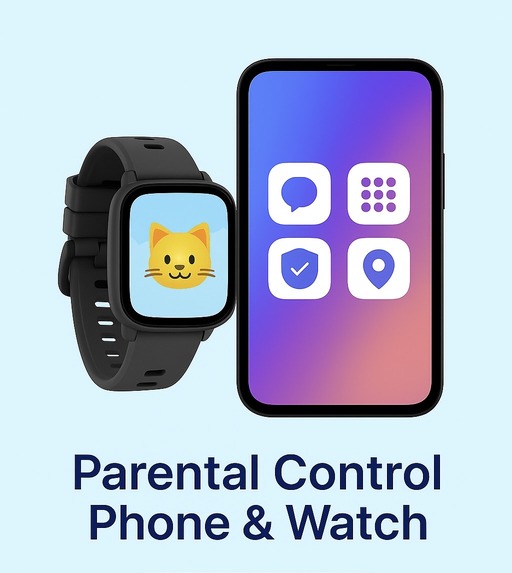
✔ Detects cyberbullying, predators, & threats
✔ Tracks real-time GPS location
✔ Sends instant alerts for risky activity
✔ Blocks explicit, violent, or unsafe websites
✔ Sets screen-time limits and bedtime schedules
✔ Lets parents approve contacts & apps
✔ Keeps data private & secure
Why Screens Actually Change Kids’ Brains — Explained Simply
You’ve probably heard warnings about screens “rewiring” kids’ brains. But what does that really mean? Let’s break down neuroscience in easy terms—how excessive screen use affects attention, mood, memory, and sleep—and how you can build defenses in everyday family life.
Neuroplasticity & the Reward Loop
Kids’ brains are highly plastic—meaning they adapt based on experience. Screens often tap into reward circuits (dopamine), giving fast hits of novelty, social feedback, and video stimulation. Over time, this can weaken the brain’s tolerance for slower, real-world rewards (reading, deep play).
Attention & Focus
Frequent task-switching (notifications, tabs, apps) trains the brain to crave stimulation. Over time, children may struggle to sustain attention on schoolwork, reading, or quiet play.
Memory & Deep Learning
Studying or reading on screens competes with distractions. Deep encoding—when information moves from short-term to long-term memory—requires focus. Frequent interruptions disrupt this process.
Emotion & Regulation
Constant access to social media and chat vies with emotional self-regulation. Kids may become more reactive, anxious, or impulsive because their brain gets used to external stimuli for emotional update rather than internal regulation.
Sleep & Circadian Rhythms
Blue light from screens suppresses melatonin, the sleep hormone. Using screens before bed delays sleep onset, fragments sleep cycles, and reduces quality. Over time, chronic sleep loss affects learning, mood, and health.
How to Buffer the Effects
- Implement tech-free windows (especially 1 hour before bed)
- Use curfews or night modes
- Alternate “deep focus” tasks without screens (reading, crafts, puzzles)
- Model balance — parents too should limit screen habits
- Encourage outdoor play, physical movement, face-to-face interaction
Real-World Examples
- A 12-year-old substituted 30 minutes of video with drawing and reported calmer focus
- A family instituted no-phone dinners — communication and calm improved
Screens don’t just compete for kids’ time—they change how their brains function. But by layering rules, routines, and restorative habits, you can buffer the negative effects and help build resilience.